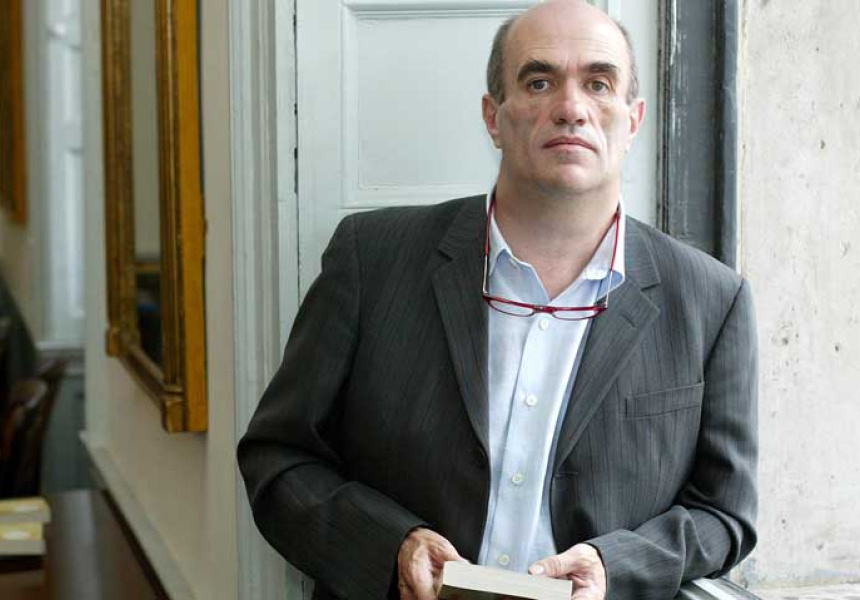Writing, says Colm Tóibín, is just like singing: you choose your tone and stay in key.
Often described as one of Ireland’s greatest living authors, his latest novella The Testament of Mary represents such an exercise. The book, which was recently nominated for the Man Booker Prize, is an imagined monologue by the mother of God – though she’s anything but convinced by her newfound role.
For some, taking on the voice of such an iconic figure may have been daunting, but Tóibín says it didn’t bother him. Rather, he approached her voice as he would any other character. “I think the difference between my voice and her voice is the difference in any book,” says Tóibín. “She speaks very little really – very, very little in the New Testament. There was no sense of her being a voice before. She was made silent.”
Stay in the know with our free newsletter. The latest restaurants, must-see exhibitions, style trends, travel spots and more – curated by those who know.
SIGN UPOriginally written as a piece for the stage, Tóibín discovered that he had more material than he could ever use in a play. “I was so sorry about some of the paragraphs that were being so blissfully removed,” he says. “So I kept everything and, when it was over, I went back to work again.”
The Testament of Mary is a purposefully spare novella at a little over 100 pages, but makes up for its length with its force. “Because it’s written in the first person, you have to give a sense of its urgency,” says Tóibín. “I was just trying to work with it image by image or sentence by sentence, rather than coming to it with an overall view of my own.”
Set after the crucifixion of Jesus, the novella finds Mary kept under surveillance, practically under house arrest, by her son’s disciples, John and Paul. Far from participating in their project, Mary resists her history being reshaped to suit the needs of this new religion.
Tóibín found inspiration for the scenario whilst visiting the Turkish city of Ephesus, where legend has it Mary died. “There’s no evidence for this, but nonetheless it’s never stopped them before,” explains Tóibín. “But if she did go there, it would have definitely been in the company of John, or somebody like him. And the idea of Paul arriving, of this pure misogynist being in the room…”
In Tóibín’s mind, her experience was little different to that of the families of modern political or religious radicals. He draws a parallel with the 10 men who died on hunger strike in Ireland in the early 1980s, or those who take their lives as suicide bombers. For some people they’re heroes, for others family. “It’s still with us,” says Tóibín. “As is having ridiculously grumpy, bossy men about the place. I think the idea of having two middle-aged men arriving in a room is still with us.”
Obviously, this is a reasonably controversial view of a major religious figure. But thankfully, Tóibín has avoided any serious blowback. “In New York, when the play was on, there were protests for the preview night and the first night of the play, but they were very muted,” says Tóibín. “They thought it was a movie. So they didn’t even know what they were protesting.”
Besides being an accomplished novelist, Tóibín also worked as a journalist earlier in his career. These days, he regularly contributes essays to the London Review of Books. He says that while other people were having kids, he was writing over 40 pieces for the LRB. “It brought me into my middle age,” he jokes. “Halfway through, when you haven’t started writing yet, you realise ‘I should be playing tennis’ or ‘I should be going drinking’. What am I doing?”
He believes that the journalistic craft helps when in creating a novel. “That whole idea of openings and endings, and attempting to be stylish in the way you present the information,” he explains. “You’re aware you’re writing for an audience, so you have this sort of immediacy that you try to write, feeling that it was going to be read by an audience. It’s not some piece of self-expression.”
While the announcement for the Man Booker Prize isn’t until October, Tóibín doesn’t seem too fazed about its outcome. “We’re all going to be famous,” he says. “All of us.”
Colm Tóibín is in Australia for the Melbourne Writers Festival next week, where he’ll give a masterclass in writing fiction on August 30; discuss the future of the Catholic Church and speak in conversation with Michael McGirr on August 31; and appear at the Sofitel Salon on September 1. For more information visit mwf.com.au

